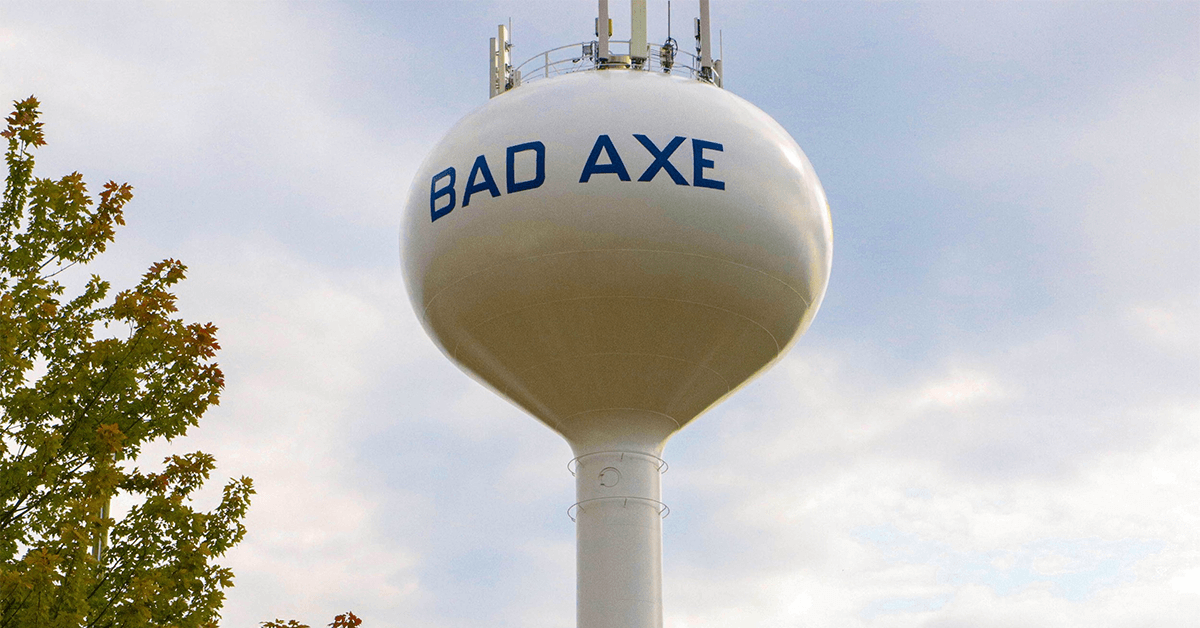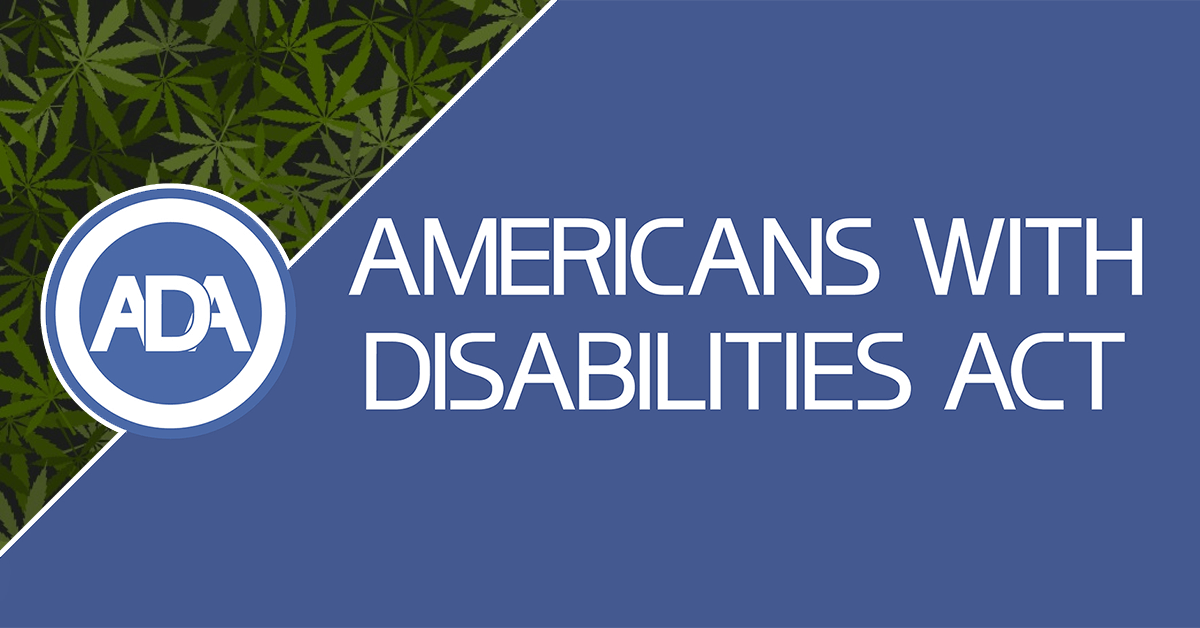"It Makes My Skin Crawl": Michigan's Urgent Battle Against Dangerous Vaping Additives

Michigan's Cannabis Regulatory Agency (CRA) is aware of the presence of potentially harmful medium-chain triglyceride (MCT) oil in some cannabis vaping products but does not plan to test for it until October. This delay comes despite evidence that inhaling MCT oil, derived from coconut or palm oil, can cause respiratory issues such as shortness of breath and lung inflammation.
The new testing requirements set to begin in October aim to detect and eliminate MCT oil from vaping products. MCT oil is often used to dilute THC distillate oil because it makes the oil easier for vaping devices to heat and convert into an inhalable aerosol. It is also a cheaper alternative to THC oil, increasing profits for producers. However, its use is currently prohibited in Michigan vaping products, though it is not yet tested for.
Cassie Coleman, chair of the National Cannabis Industry Association's scientific advisory committee, noted, "Unscrupulous producers might be adding MCT oil knowingly, while others might be doing so unintentionally through terpenes, which are permitted additives that enhance flavor and aroma."
David Egerton, Manager at Jackson-based Infinite Chemical Analysis Lab, highlighted that a sample test of various retail products earlier this year revealed nearly 10% contained MCT oil, with concentrations ranging from less than 1% to 20%. The CRA has not quantified the extent of the issue but believes that market self-regulation will phase out the use of MCT oil.
CRA spokesperson David Harns stated, "We've seen marijuana retailers voluntarily removing products with MCT oil from their shelves already, and we fully expect that this action will result in the rest of the industry doing the same prior to the October 1st deadline."
However, this approach has faced criticism. Coleman, who stopped consuming marijuana vaping products due to concerns over additives, questioned why the CRA's actions will take until October and why the issue hasn't been more widely communicated. "I'm glad they're doing something, but I'm a little confused why it's going to take until October and why it's being presented to industry insiders rather than the public."
Comparisons have been made to the past use of vitamin E acetate in nicotine and cannabis vaping products, which was banned after causing nearly 2,800 hospitalizations and 68 deaths in the U.S., including three in Michigan. Egerton noted that while the acute harm potential of MCT oil is not at the same level, there are still concerns.
When the vitamin E acetate crisis emerged, the CRA halted all sales of vaping products until they were retested. This has not happened with MCT oil, leading Coleman to call for immediate action. "If we have evidence that these products are contaminated, we should be able to stop it," she said. "We should be able to stop today products from being made and marketed to consumers."
Vaping cartridges accounted for about 20% of Michigan's marijuana sales last year, totaling nearly $585 million in revenue, with over $52 million in sales in May alone. While some industry insiders argue that immediate testing of all vaping products is infeasible, others stress the need for swift action.
Egerton called it an "impossible task" to require immediate testing but expressed hope that most processors would eliminate MCT oil in light of the new requirements. Robin Schneider, Executive Director of the Michigan Cannabis Industry Association, noted that several retailers are already proactively testing their inventory.
Producers are required to submit their product formulations to the CRA, including only FDA-approved inhalation additives or cannabis-derived ingredients. However, until October, consumers have no foolproof way to verify that their vaping products are free from MCT oil. Lower THC concentrations can be an indicator, but Egerton pointed out that MCT oil is often used in such small amounts that it is indistinguishable from other products.
The CRA aims to have a new state-run lab operational by the end of the year, which will enhance accountability and public protection. CRA Executive Director Brian Hanna emphasized, "From a public health and safety standpoint, the potential for adverse effects with MCT oil underscores the importance of safety guidelines for product development. Michigan's licensed marijuana businesses must prioritize respiratory safety when formulating or using inhalable products, opting for ingredients thoroughly evaluated for their compatibility with lung health."
Advocating for Stricter Regulations on Cannabis Vaping Additives
The ongoing issues with harmful additives in cannabis vaping products highlight the need for more stringent regulatory measures. Instead of merely testing for specific banned substances like MCT oil or waiting for harmful effects to emerge, regulators should implement a proactive approach by establishing a comprehensive list of approved additives. Only ingredients on this list, verified for safety through rigorous testing, should be permitted for use in vaping products.
The transition from vitamin E acetate to MCT oil illustrates a troubling pattern. As one harmful substance is identified and banned, businesses may simply switch to another, potentially equally dangerous, additive to cut costs or enhance product performance. This reactive regulatory stance leaves consumers vulnerable to unforeseen health risks.
Regulators should prioritize consumer safety by banning the use of any additives in cannabis vaping products until they have been thoroughly tested and confirmed safe for inhalation. This preventative measure would not only protect public health but also ensure that producers adhere to higher safety standards.
Implementing a system where only pre-approved, safe additives are allowed would eliminate the loopholes that currently enable the use of potentially harmful substances. It would also shift the focus from chasing after the next dangerous additive to fostering a market that prioritizes consumer well-being. By taking these steps, regulators can prevent future health crises and maintain the integrity of Michigan's cannabis industry.
Bad Axe Cannabis Ordinance Fails in City Council Vote

The Bad Axe City Council rejected a proposed cannabis ordinance with a 5-2 vote during their July 1st meeting, which drew a significant public turnout.
The decision followed a lively public comment session where both supporters and opponents of the ordinance voiced their opinions. Prior to the vote, the council rescinded a previous decision to put the ordinance on the ballot for voters to decide.
Jo Wolschlager, a property owner in Bad Axe but not a resident, spoke in favor of the ordinance. Wolschlager highlighted the medical benefits of cannabis and the potential economic advantages for the city. She emphasized that the revenue generated could benefit the local community rather than being spent elsewhere.
"My biggest reason for approval is because of unintended consequences," Wolschlager stated. "We may not all agree with recreational use of cannabis, but it also has a lot of medical uses. If an individual does not agree with recreational use, then simply don't go there."
Despite her arguments, Wolschlager was the only person to speak in favor of the ordinance. Kevin Richardson, representing the opposition, cautioned the council against prioritizing tax revenue over community values.
"I just don't want the council to think that, 'We're going to get a lot of tax revenue from this,'" Richardson said. "We do have to draw lines. Just because you get tax money from it, doesn't mean it's right."
The ordinance ultimately failed with council members Clark McKimmy, Dan Rapson, Joel Harrison, Nicholas Rochefort, and Mayor Kathleen Particka voting against it. Council members Steve Perez and Dan Glaza were the only supporters of the ordinance.
Best Cannabis Lawyers in Michigan for 2024

For those seeking expert legal assistance in the cannabis industry, Michigan Lawyers Weekly has announced its inaugural list of "Go To Lawyers" specializing in cannabis law. This recognition highlights top attorneys who have demonstrated exceptional knowledge and success in the complex and evolving field of cannabis legislation and regulation.
Why You Need a Cannabis Lawyer
Navigating the legal landscape of the cannabis industry in Michigan requires specialized knowledge. From understanding state-specific regulations to handling compliance issues and representing clients in court, a skilled cannabis lawyer is essential. Here's what makes a cannabis lawyer indispensable:
- Expertise in Cannabis Law: Knowledgeable about Michigan's cannabis laws, including licensing, compliance, and regulatory issues.
- Successful Track Record: Proven history of successfully handling cases and transactions in the cannabis sector.
- Peer Recommendations: Trusted by other legal professionals, often receiving referrals due to their expertise.
- Creative Legal Solutions: Capable of devising innovative solutions to complex legal challenges.
- Reliable Advice: The go-to person for reliable and thorough legal counsel in cannabis-related matters.
Meet Michigan's Leading Cannabis Lawyers
Michigan Lawyers Weekly's list of "Go To Lawyers" for cannabis law features the state's top legal experts. These attorneys have made significant contributions to the field and are recognized for their outstanding work:
- Kimberly A. Baber – Varnum, Grand Rapids
- Maxwell N. Barnes – Miller Johnson, Grand Rapids
- Lance Boldrey – Dykema Gossett, Lansing
- Emily E. Cantor – Warner Norcross + Judd, Grand Rapids
- Salam Elia – Elia Law, Birmingham
- Bernard J. Fuhs – Butzel, Detroit
- Sean Gallagher – Fraser Trebilcock Davis Dunlap & Cavanaugh, Lansing
- Michael Komorn – Komorn Law, Farmington Hills
- Bruce Leach – Law Office of Bruce Leach, Flint
- Alexander M. Leonowicz – Howard & Howard Attorneys, Royal Oak
- Douglas E. Mains – Honigman, Lansing
- Robert Nederhood – Foley & Lardner, Detroit
- David K. Puro – Cannatron, Oak Park
- Jeffrey M. Schroder – Plunkett Cooney, Bloomfield Hills
- David S. Senawi – Senawi Law, Birmingham
- Nicholas J. Tatro – Foley Baron Metzger & Juip, Livonia
- Kevin Washburn – McDonald Hopkins, Bloomfield Hills
Why These Lawyers Stand Out
These attorneys have been recognized for their deep understanding of Michigan's cannabis laws and their ability to navigate the intricacies of the legal system. Their profiles, to be published in the July 29th editions of Michigan Lawyers Weekly, will provide detailed insights into their careers and achievements.
How to Choose the Right Cannabis Lawyer
When selecting a cannabis lawyer, consider the following:
- Experience: Look for lawyers with a proven track record in cannabis law.
- Expertise: Ensure they have specific knowledge of Michigan's cannabis regulations.
- Reputation: Choose someone who is highly regarded by peers and clients.
- Approach: Find a lawyer who offers creative and comprehensive legal solutions.
Conclusion
For anyone involved in Michigan's cannabis industry, having a knowledgeable and experienced cannabis lawyer is crucial. The "Go To Lawyers" recognized by Michigan Lawyers Weekly represent the best in the field, offering invaluable expertise and support to navigate the complexities of cannabis law.
Pincanna's Pinconning Store Offers Wholesale Prices Direct from Cultivation Facility

Opened in February, the store in Pinconning offers cannabis flower, vapes, and edibles produced just 300 yards away at Pincanna's 135,000-square-foot cultivation facility. The products are sold at wholesale prices, with premium flower brand Head Stash Harvest retailing for $12 an eighth at the Pinconning location, compared to $20 at Pincanna's East Lansing store.
Founder and owner Robert Nusbaum explains the strategy behind the store's rural location.
"It's in the middle of nowhere, but it's a gateway to Up North," Nusbaum said. "We're doing this to benefit ourselves and our wholesale partners. When they stop in, they can stock up on our product for much cheaper and decide whether they like it. If they do, they can seek out our goods at one of our stores downstate or another store that sells our goods."
Nusbaum's background in retail, stemming from his family's success with New York Carpet World, has influenced Pincanna's approach. This customer-focused strategy has propelled Pincanna to become one of Michigan's largest cannabis cultivators. Despite Nusbaum's lack of experience in cannabis cultivation, he has assembled a team of experienced growers and processors, many of whom previously operated in the black market.
Among them is Ju Juan Coleman, known in the cannabis community as "Funk." Coleman has been making cannabis edibles for over 20 years, initially from his home kitchen in Detroit to treat his sickle cell anemia. Today, under the Funky Extracts brand, Coleman produces 400,000 infused edibles a month from Pincanna's state-of-the-art commercial kitchen.
Coleman's journey is mirrored by Vince Volovlek, who transitioned from opioids to cannabis following a severe ATV accident. Volovlek founded Michigan Organic Rub in 2013, creating balms containing THC to alleviate pain and inflammation. Nusbaum acquired Michigan Organic Rub in 2019 and promoted Volovlek to director of processing.
Nusbaum's philosophy is to harness the expertise of those passionate about cannabis while guiding them through the business aspects. He frequently visits the Pinconning facility to engage with staff and oversee operations.
"This is a relationship business we're building," Nusbaum said, emphasizing the importance of teamwork and collaboration.
Pincanna's innovative approach extends to its hiring practices, promoting talent from within based on potential and creativity. For example, a packaging department worker was promoted to head of packaging design after his doodles were noticed by Nusbaum.
However, balancing passion and profitability can be challenging. Nusbaum acknowledges the difficulties but remains optimistic about the company's direction. Recently, Don Newman, former director of cultivation at High Life Farms, joined Pincanna to enhance their growing operations. Newman has doubled production to 30,000 pounds without expanding the facility by optimizing growing techniques.
"We're producing twice as much as we were a year ago and that's all because of Don," Nusbaum said. "We have better production and our quality has gone through the roof. We've really started something special here."
Pincanna currently operates four retail stores in Pinconning, Kalkaska, East Lansing, and Kalamazoo, with plans to open two more in Mount Pleasant and Saline. Nusbaum aims to expand to 12 stores, allowing Pincanna to sell most of its flower in-house, thus boosting profit margins.
"We want to control our own destiny," Nusbaum said.
While Nusbaum envisions eventually selling the company, he remains dedicated to its growth for the foreseeable future. At 63, he foresees an exit in three to five years but continues to learn from his team of cannabis experts.
Pincanna's journey exemplifies how combining retail expertise with a passion for cannabis can drive success in the burgeoning industry.
Misstep Forces Bad Axe to Reconsider Cannabis Ordinance Vote

The Bad Axe City Council will need to rescind its previous motion to put its proposed cannabis ordinance to a public vote after learning it did not follow proper procedure.
The council will address this issue at the meeting on July 1st, where they will also vote on whether to approve the ordinance directly.
"According to the city attorney, we cannot put the ordinance on the ballot," stated Bad Axe City Manager Rebecca Bachman. "We were unaware that this was not permissible."
Bachman explained that the Bad Axe City Council must initially vote on the ordinance. The only way it could appear on the ballot is through a voter-initiated referendum.
A referendum requires signatures from 15% of the city's registered voters. If a petition with the necessary signatures is filed within the timeframe specified by the city charter, the clerk will present it to the council at the next regular meeting. These signatures must be collected within 30 days before the petition is filed with the clerk.
Previously, the council voted 4-3 to place the ordinance on the ballot.
Recreational cannabis was legalized in Michigan following the 2018 general election, where 56% of voters supported Proposal 18-1. However, Huron County voters opposed the proposal, with a vote count of 8,261 against and 5,479 in favor. In Bad Axe, the proposal was narrowly rejected by a margin of seven votes, 541-534.
In early 2019, the city voted unanimously to ban cannabis facilities within city limits.
In 2021, non-residents expressed interest in establishing cannabis businesses in Bad Axe. The council, however, voted 4-2 against pursuing these discussions. Subsequently, the council authorized the Bad Axe Police Department to research ordinances from other municipalities.
In November 2023, the city finally decided to begin the process of developing a recreational cannabis ordinance for Bad Axe.
Incident Highlights Need for Better ADA Compliance in Michigan Cannabis Industry

An incident involving potential discrimination against a disabled combat veteran at a provisioning center in Ann Arbor has sparked concerns about the cannabis industry's adherence to the Americans with Disabilities Act (ADA). The event, which took place on June 29th, 2024, underscores the necessity for better education and awareness among cannabis business operators regarding their legal obligations toward customers with disabilities.
A disabled veteran, whose name has been withheld due to an impending formal complaint, reported being denied entry to a provisioning center because of their service dog. According to the veteran, the situation escalated until they mentioned contacting the Cannabis Regulatory Agency (CRA), which led to a sudden change in the employees' demeanor. The veteran also reported being asked for documentation for their service animal, a request that is explicitly prohibited under the ADA.
This veteran's distressing experience is not an isolated case. Reports of similar incidents have surfaced in recent months, with at least four veterans reporting denial of entry to cannabis provisioning centers due to their service animals. Such incidents highlight a troubling pattern of non-compliance with ADA regulations, which mandate that businesses must allow individuals with service animals to enter their premises without requiring any special documentation or identification for the animals.
ADA Requirements and Industry Responsibilities
Under the ADA, businesses must accommodate individuals with disabilities and their service animals. The law is clear: service animals are not required to wear special vests, nor can businesses ask for documentation proving the animal's status. The only permissible inquiries are whether the animal is required because of a disability and what work or task the animal has been trained to perform. Failure to comply with these requirements constitutes discrimination, regardless of whether the violation stems from ignorance or deliberate action.
The incident in Ann Arbor is a reminder of the cannabis industry's duty to adhere to these laws. Licensees must ensure their staff are fully aware of and compliant with ADA requirements as a condition of maintaining their licenses. Discrimination, whether intentional or due to lack of knowledge, poses significant legal risks and can damage the reputation of the businesses involved.
Call for Enhanced Education and Industry Standards
In response to the incident, the concerned party who alerted the CRA has pledged to address this issue directly with CRA Director Brian Hanna. The aim is to ensure that the provisioning center involved, as well as the broader industry, receives proper education on ADA compliance. This proactive approach seeks to prevent future incidents and promote a more inclusive environment for all customers.
The repeated nature of these complaints highlights a need for systemic change. The CRA has been urged to issue educational reminders to all licensees, reinforcing the importance of ADA compliance and the rights of individuals with service animals. Education and awareness are crucial to prevent unnecessary legal conflicts and to foster a welcoming atmosphere for veterans and other individuals with disabilities.
Industry Reactions and Broader Implications
Reactions within the industry have been mixed. Some argue that the lack of familiarity with service animals in dispensaries could lead to misunderstandings, emphasizing the need for education rather than punitive measures. Others stress that ignorance of the law is not an excuse for non-compliance and that businesses must be held accountable for their actions.
Veterans, in particular, are a significant demographic within the cannabis community, often using cannabis for therapeutic purposes. Ensuring their rights and comfort within provisioning centers is not only a legal obligation but also a matter of respect and gratitude for their service.
Moving Forward
The cannabis industry in Michigan must prioritize ADA compliance to avoid discrimination and create an inclusive environment for all customers. This incident serves as a crucial reminder of the importance of education and the need for continuous efforts to uphold the rights of individuals with disabilities.
For further information on ADA requirements, please refer to the official ADA website.


 Helpful Links
Helpful Links